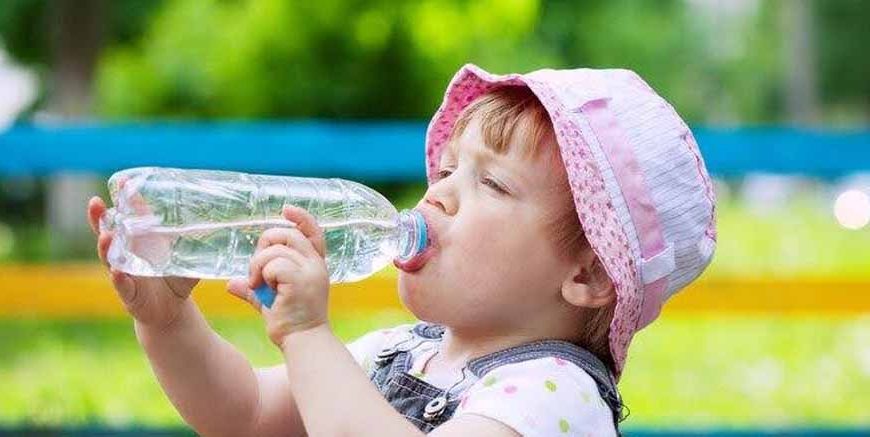The increased temperatures would mean that dehydration and heat-related illnesses in babies and children is more likely to happen. Small solid bodies are not so capable to maintain normal flow of fluids and body temperature compared to adult people. In any case, parents need to take important actions to ensure babies stay healthy and hydrated, as the weather starts to warm.
The fluid requirement by a pound of infancy or childhood is higher than that of an adult. They are unable to conserve moisture through normal acts like breathing, passing urine, sweating and bowel movements. In this way, the issues like irritability, reduced urine output, dry mouth, weakness and dizziness the body may face, are prevented. Emergency room care is needed in cases of severe dehydration.
All babies are vulnerable, but those at highest risk include: under 6-month-old infants who are only liquids from caregivers; exclusively breastfed babies who may not get enough milk during warmer temperature; babies who switch to more solid food and therefore drink less milk; babies vomiting , diarrhea or disease , babies who play outside vigorously and babies who can’t verbalize their own issues.
Why Hydration Matters:
Water makes up a large part of a baby’s body composition. It is essential for carrying nutrients, removing waste, stabilizing temperature, and keeping organs and tissues functioning properly. Even mild dehydration can cause issues like irritability, reduced urine output, dry mouth, and fatigue. Severe dehydration is very dangerous and requires immediate medical treatment.
Babies have higher fluid needs relative to their size than adults. They lose comparatively more fluids through breathing, excess sweating, and frequent bowel movements. When feedings are primarily liquid-based in the first year, it’s especially vital that parents offer sufficient volumes and avoid inadequate intakes. As babies transition to more solid foods, the goal is to keep up frequent drink offerings in addition to healthy meals.
Risk Factors for Dehydration:
While all babies are at risk of dehydration in hot weather, certain factors increase vulnerability. Infants under 6 months have the highest risk since they rely completely on caregivers to meet fluid needs. Exclusively breastfed babies may not get adequate milk intake during heat waves to stay hydrated. Babies transitioning from breast milk/formula to more solid foods often drink less, missing out on important fluids. Any illness causing vomiting or diarrhea can lead to dehydration very rapidly in babies due to fluid losses.
Babies who play vigorously outdoors in the heat are prone to dehydrating faster from excess sweating. Finally, babies unable to communicate thirst on their own depend on caregivers offering fluids frequently enough, which can be difficult to judge. Paying special attention to hydration with these high risk groups through more frequent feedings, milk/water supplementation when appropriate, and careful output monitoring can help reduce their likelihood of dehydration. While any baby can become dehydrated in very hot weather, the following factors place them at increased risk:
- Under 6 months old – Infants this young are dependent on caregivers to meet fluid needs.
- Exclusively breastfed – Breast milk is 87% water, but volumes consumed may be insufficient on very hot days. Offer extra feedings.
- Transitioning to solid foods – Don’t let more solid intake replace the important fluid content from breast milk or formula.
- Illness causing vomiting/diarrhea – Fluid losses from gastrointestinal issues can lead to acute dehydration very quickly in babies.
- Active outdoor play – Vigorous play causes more fluid loss through sweat. Replenish frequently with drink breaks.
- Unable to communicate thirst – Cannot request more to drink independently, so caregivers need to offer fluids proactively.
Early Signs of Dehydration:
Catching dehydration early can prevent it from progressing to more concerning levels. Watch for these cues:
- Decreased wet diapers
- Dark, concentrated urine
- Dry mouth/tongue and absence of tears
- Sunken eyes, cheeks or soft spot on head
- Irritability, lethargy, weakness
- Overheating
If you observe multiple symptoms combined with risk factors for fluid losses, seek medical advice right away. Infants less than 6 months old should be evaluated emergently if dehydration is suspected at all.
Also Read – Toddler not peeing but not dehydrated
Preventing Heat-Related Illness:
Making smart preparation and risk reduction choices throughout the summer is key to keeping your baby healthy. Follow these top tips:
Adjust Fluid Intakes:
- Offer extra breastfeeding/bottle feedings before the baby shows signs of thirst.
- Provide small volumes of cool water for supplementation as needed.
- Fruity frozen pops provide hydration plus relief.
Limit Heat Exposure:
- Seek shade, avoid direct sun.
- Do outdoor activities during cooler parts of the day.
- Take frequent breaks in air conditioning.
Check Baby’s Temperature:
- Monitor for fever which raises risk for dehydration.
- Feeling hot vs actually being too hot is difficult to judge by touch in babies.
Dress Appropriately:
- Choose lightweight, light colored clothing.
- Remove extra layers of clothing whenever possible.
Use Cooling Techniques:
- Give lukewarm baths if overheated.
- Place a cool washcloth on your forehead, wrists, neck.
Track Urine and Stool Output:
- Aim for 6-8 wet diapers daily in babies under 6 months.
- Take note if urine becomes darker or infrequent.
Address Vomiting and Diarrhea Aggressively:
- Have an emergency rehydration plan in place.
- Give small frequent volumes of oral rehydration solution.
- Seek medical help promptly when illnesses cause dehydration.
Preparing an Emergency Rehydration Plan:
Having a proactive plan for addressing vomiting and diarrhea can help regain control faster during illness and reduce serious impacts like hospitalization. Here are key components to include in your contingency strategy:
- Oral Rehydration Solutions:
- Medical Contact Information:
- Symptom Tracking:
- Transport Plan:
- Fluid Goals/Methods:
- Contingency Childcare:
Purchase electrolyte solutions in advance to always have on hand for replenishing fluids/minerals lost. Many options like Pedialyte exist, but the CDC and American Academy of Pediatrics provide recipes to make your own affordable homemade version.
Know emergency medical contact information and nearest healthcare facilities in case acute treatment becomes necessary. Having a relationship with your pediatrician can facilitate getting appointments faster during sickness.
Keep a log noting times, descriptions and volumes of vomiting, diarrhea and urine outputs. These details help healthcare providers assess the degree of dehydration and response to treatment.
Make alternate arrangements for transportation ahead of time in case you need to take your baby to receive IV fluids or hospital admission. Review car seat guidelines for vomiting/diarrheal illness.
Work with your pediatrician to outline fluid intake goals and preferred methods based on your baby’s age, weight and usual feeding routine. Understand techniques like smaller, more frequent feedings of oral rehydration solution.
If possible, have a backup caregiver on standby to come over if you become incapacitated or need to accompany your baby for medical care.
While keeping babies adequately hydrated poses some unique challenges, being prepared with knowledge about their needs, warning signs of dehydration and proactive hydration promotion strategies can help ensure your child stays healthy in hot weather. Recognizing early signs of fluid losses and illness and having an emergency response plan in place can reduce more severe risks associated with dehydration in babies. Pay close attention to your little one’s fluid intake and output patterns as temperatures climb to keep their small bodies cool, calm and optimally hydrated all summer long. With some vigilance, your baby can safely and happily enjoy the warmth of the sunny season.
For more such interesting blogs, Visit EuroKids















